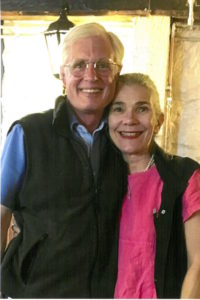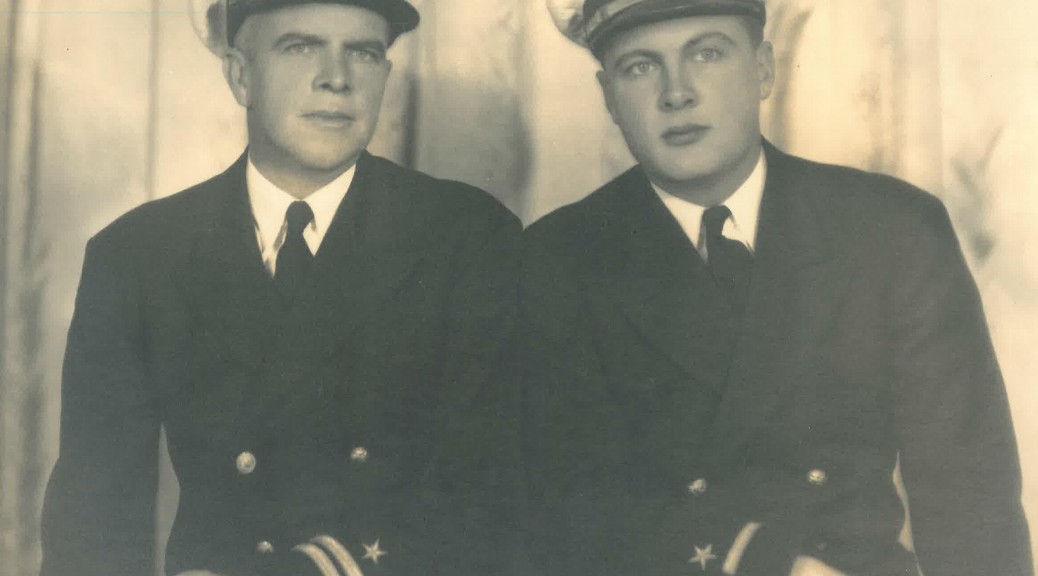 One of my favorite Christmas stories comes from the book, “Love’s Endeavor/Love’s Expense.” [1] One Christmas, Eve, a Rev. Vanstone was preparing for services when he heard a noise outside the church door. It was a young alcoholic—a wasted life. He helped the young man as best he could. Later, as he waited for the final service of the day he fell to sleep. While asleep, he had a dream. A rubbish collector brought a huge pile of waste, stones, cans, waste paper, and scrap metal. He asked the pastor what he was to do because there was a face at the bottom of the waste heap. The face was the face of Christ, the Son of God. The dream symbolized the love of God sitting under our lives redeeming all the waste and loss we create by sin.
One of my favorite Christmas stories comes from the book, “Love’s Endeavor/Love’s Expense.” [1] One Christmas, Eve, a Rev. Vanstone was preparing for services when he heard a noise outside the church door. It was a young alcoholic—a wasted life. He helped the young man as best he could. Later, as he waited for the final service of the day he fell to sleep. While asleep, he had a dream. A rubbish collector brought a huge pile of waste, stones, cans, waste paper, and scrap metal. He asked the pastor what he was to do because there was a face at the bottom of the waste heap. The face was the face of Christ, the Son of God. The dream symbolized the love of God sitting under our lives redeeming all the waste and loss we create by sin.
Our theme this Christmas is, “What is Next?” Life is not a sermon series. Sermon series come to an end. In real life, each moment, a “Next” arrives and a new “What Next” emerges. We always wonder what is coming next. This morning, we celebrate the ultimate answer to the ultimate “What’s Next?” What’s next is the love of Jesus the Christ, the Word of God made flesh.
Today we celebrate that God’s self-giving love is the final end of our deepest longings. Having been a pastor for a long time, it is remarkable to me how important love is. Many emotional and moral problems that adults have in later life stem either from a lack of love or a perceived lack of love as children. The universe seems to have been created by God with a deep relationality that holds within itself the potential for love. Human beings are wired for love. We will never find true happiness until we find that love that will not let us go.
The Birth of the Messiah.
Our text comes at an important moment in Isaiah. It comes as God’s judgment moves to mercy in the life of God’s people. Listen together for the Word of God from Isaiah, Chapter 40, verses 28-31:
Have you not known? Have you not heard?
The Lord is the everlasting God,
the Creator of the ends of the earth.
He does not faint or grow weary;
his understanding is unsearchable.
He gives power to the faint,
and to him who has no might he increases strength.
Even youths shall faint and be weary,
and young men shall fall exhausted;
but they who wait for the Lord shall renew their strength;
they shall mount up with wings like eagles;
they shall run and not be weary;
they shall walk and not faint.
Dear Lord and Father of our Lord Jesus Christ, come in our hearing and our meditation to give us faith, hope and love.Let the words from scripture be words of our hearts as Your Word convicts us, converts us, and makes us truly yours. In Jesus Name, Amen.
The Future is Always Unknown
Wondering about the future is a part of human life. We are born wishing we could know the future. All children love to try to guess what is under the Christmas tree. Some months ago, we found out that we are going to be grandparents. We are currently busy guessing the gender of our new grandbaby to be. It used to hard to know the sex of a baby. Except for wives’ tales, like girls are carried higher than boys,” there was no way to know. With the advent of “Ultrasound” and other tests, all this changed. Now there is no guessing unless you want to guess, which our children so far do. Kathy and I always guessed, and I was never right, not once. This time, I am restraining myself because I am sure I will be wrong.
 Other than wives’ tales, Mary and Joseph had no scientific way of knowing for certain that Mary was going to have a son. (Although, the advice of angels is usually pretty accurate!) They had some idea when the baby would be born, enough to know it was soon when they started out for Bethlehem. In fact, it may be that Mary went with Joseph because they suspected the baby would come while he was away on family business. [2]You can bet that, as they made the journey from Nazareth to Bethlehem, they wondered, “What will happen next?” They did not know the future. They had to walk to Bethlehem by faith trusting God for their uncertain future.
Other than wives’ tales, Mary and Joseph had no scientific way of knowing for certain that Mary was going to have a son. (Although, the advice of angels is usually pretty accurate!) They had some idea when the baby would be born, enough to know it was soon when they started out for Bethlehem. In fact, it may be that Mary went with Joseph because they suspected the baby would come while he was away on family business. [2]You can bet that, as they made the journey from Nazareth to Bethlehem, they wondered, “What will happen next?” They did not know the future. They had to walk to Bethlehem by faith trusting God for their uncertain future.
Most of the time, we have no choice but to trust God for the future. The birth of children is one of those times. No marriage is ever the same once children are born. We can wonderthat is next. We can planfor what is next. We can hopefor what is next. But, we cannot know for certainwhat is next until the time comes. Raising children (and especially teenagers) is an opportunity to wait upon the Lord while asking, “What comes next?” Life is one big wait for the future to be unfolded.
We Trust God for the Future
I am a planner, and I like to plan what is coming. I have, however, learned that no one can possibly know for sure what is coming next. In this life, we cannot live by sight (knowing); we have to live by faith (trusting). Since “What Comes Next?” is a perennial question of human life, if we don’t trust in the Ultimate Love of God, we will always be filled with worry. The future is simply not under our control. We have to walk by faith not by sight. The “faith” we need is hard when our prayers are not answered according to our timetable or exactly in the way we hope and imagine.
Mary and Joseph were in such a situation as they walked toward Bethlehem just before the first Christmas Eve so long ago. As they walked towards Bethlehem on December 23, 0000, they must have been wondering, “When will the baby be born?” “Will the delivery be easy or hard” “Will the baby be healthy?” “Will it turn out that the angel was right, and our Son will be the Messiah?” You can go on and on. Mary and Joseph had many questions. They, like us, wondered, “What’s Next?” But, because they were believers, and because they knew that God is faithful, so they walked with hope towards Bethlehem.
Every moment of our lives is an uncertain moment.We don’t know what tomorrow will bring. We are often concerned about the future. We are concerned about the economy, the stock market, jobs, the President, the Congress, the Courts, and especially the Cleveland Browns! There are always hundreds and thousands of things for us to worry and wonder about. Recently, the stock market has been declining just as I am about to reenter retirement. No one knows how far it will fall. Every moment of every day is an opportunity to either trust God or worry.
In the midst of all of our “wondering’s in worrying’s,” it’s a good idea to remember that those who wait upon the Lord will be given the strength and the wisdom to meet the demands of the future (Isaiah 40:31). In every area of life, we have to wait and trust God for the future.
Waiting on God for the Future
Joseph waited on and trusted God for the future. As he walked towards Bethlehem, he had no idea Herod would try to kill his baby. He had no idea that his family was not going back to Nazareth, but instead he was going to flee to Egypt for a long time. He had no idea that he would leave his wife a widow. He had no idea that his first son would die young and leave Mary without the comfort of an oldest son to care for her. We don’t know all of what was going to Joseph’s mind as they traveled south to Bethlehem. What we do know is that Joseph and Mary were waiting on God and trusting that God was loving and faithful. We are no different.
Every December, I read the end of Proverbsaround Christmas. Many proverbs are about planning and the limits of planning. This week, I noticed something. One ofthe proverbs for this week goes like this, “The heart of man plans his way, but the Lord establishes his steps”(Proverbs 16:9) This is so true! We all have hopes, dreams, plans, and the like; however, because we cannot know what will happen tomorrow, we must have faith and hope in the love of God. God gave us minds and imagination. It is important that we use them.
We need to plan. But, we do not control the future. We can only respond by living wisely, working hard, and having faith in the love of God as we wait for the future to unfold. As we wait, we can know that the God of love will give us the strength to rise up and meet the future like eagles. We may be young or old, strong or weak, in every situation, God will give us the energy and power to rise up and meet what is next. [3]
Loving Others as we Wait on God
One reason our culture experiences so much hopelessness is that we have lost our transcendent hope—a hope not built on human ingenuity or human work but upon the grace of One who loves us and who understands our weakness. We have lost the hope that comes from waiting on God. I am pretty sure that our politics would be less divisive and our business and economics less grasping if we really and truly trusted that God would take care of us whether our party wins, whether or not we get that new job, and whether or not we get this thing we think we want or need.
 You see, Faith and Hope are completed in love. John tells us that, “God so loved the world that he gave his Only Begotten Son that whosoever believeth in Him should not perish but have Eternal Life” (John 3:16). The birth Mary and Joseph received, and which we celebrate tomorrow, was a gift of Divine Love to the whole world. All the Christmas Trees, Christmas Parties, Christmas Presents, and Christmas Memories of this and every Christmas are but a small reflection of the love that God poured out on the world on that first Christmas.
You see, Faith and Hope are completed in love. John tells us that, “God so loved the world that he gave his Only Begotten Son that whosoever believeth in Him should not perish but have Eternal Life” (John 3:16). The birth Mary and Joseph received, and which we celebrate tomorrow, was a gift of Divine Love to the whole world. All the Christmas Trees, Christmas Parties, Christmas Presents, and Christmas Memories of this and every Christmas are but a small reflection of the love that God poured out on the world on that first Christmas.
This is where I must make a confession. Kathy and I are hooked on Hallmark Christmas movies. Although the plots are similar, but it is always a sentimental love story, although they’ve taken most of Christ out of Christmas in the stories, Story still reflect that love that God shown on the Christmas Eve so long ago. A love so great that it would die on a cross for the beloved came in human form. The world can deny his divinity, but it cannot escape his love. That great love changed and continues to change everything, even among those who deny him.
The greatest thing about faith and hope is that they free us to love others. We are free from the anxiety of thinking that the outcome of our lives is totally up to us. We can relax, enjoy life, do our part (of course), all with love for others. Jesus could love other people unconditionally because of his uninterrupted fellowship with God that freed him from the fears and anxieties that warp our lives. We can love others because God loves us, and can be trusted to give us the deepest desires of our hearts in every circumstance.
Conclusion
Tomorrow night, we come together to celebrate the Manger. It is at the Manger that we find the ultimate answer to all of our questions and the ultimate end of our waiting. What’s Next this week is the birth of a baby—God’s gift of love—whose life changes the world and us, if only we hear his call and follow Him. We wait in faith with hope and love, because “Love has Come.”
Amen
Copyright 2018, G. Christopher Scruggs, All Rights Reserved
[1] W.H. Vanstone, Love’s Endeavor/Love’s Expense: The Response of Being to the Love of God(London, ENG: Darton, Longman & Todd, 1977), 71.
[2] Robert H. Stein, “Luke” in The New American Commentary: An Exegetical and Theological Exposition of Holy Scripture Vol. 24 (Nashville, TN: Broadman, 1992), 103-111. Ordinarily, Mary would not have been required to go with Joseph to be registered to pay taxes, though there were some exceptions to the general rule. Joseph probably took her because of the prejudice against her in Nazareth or because she was due and he wanted to be present for the birth. of the reasons.
[3] Waiting for God does not mean being passive. We must work, plan, and act while we are waiting. While on the grace of God can bring us the future we hope for, we still must work for it. See, G. Christopher Scruggs, Centered Living/Centering Leading; The Way of Light and Love(San Antonio, TX: Book Surge, 2016). The concept of active waiting is inherent in wisdom.
PS: Kathy and I want to wish all of our friends a very Merry Christmas and the Happiest of New Year’s!












































